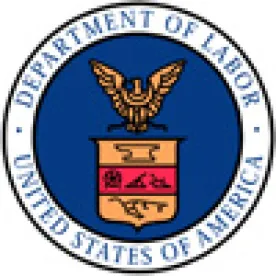On March 23, the U.S. Department of Labor issued a Final Rule that significantly expands reporting requirements by employers and their consultants and attorneys related to “advice” given regarding employees joining a union or collective bargaining. As a result, employers and the consultants/lawyers they engage regarding union organizing activity or contract negotiations will be required to file reports with the Department of Labor within 30 days after entering into an agreement to provide reportable services, and the reports will be available to the public online. The reports must include fees paid by the employers and fees collected by the consultants/lawyers.
The Way It Was — Previously, when employers hired consultants (including lawyers) to provide advice and assistance related to employees’ rights to organize and/or engage in collective bargaining, the employers and consultants were required to disclose the terms of their agreements and the fees paid only when the consultants/attorneys had direct communication with employees. Other activities commonly undertaken by consultants/attorneys were not reportable, such as written communications, strategy and tactics, and training or coordinating supervisor activity regarding a union organizing campaign or collective bargaining. These activities were not reportable because they were deemed to be “advice.”
The Way It Will Be — The revised rule substantially narrows the definition of “advice,” and the intended consequence is to make reportable many of the arrangements that were not reportable previously. “Advice” that does not trigger reporting is “an oral or written recommendation regarding a decision or course of conduct.” Arrangements under which a lawyer provides legal services or representation in court or in collective bargaining negotiations are not reportable. However, any work or advice where the “actions, conduct or communications by a consultant [lawyer] on behalf of an employer that are undertaken with an object, directly or indirectly, to persuade employees concerning their rights to organize or bargain collectively” must be reported.
The following situations were previously not reportable but must be reported under the revised rule:
-
The consultant/lawyer coordinates the activities of supervisors;
-
The consultant/lawyer creates persuasive materials or communications in any form to be disseminated to employees;
-
The consultant/lawyer revises or edits employer-created materials to increase the persuasiveness of a document;
-
The consultant/lawyer conducts seminars that assist employers in developing anti-union tactics and strategies to be used by the employers’ supervisors or other representatives;
-
The consultant/lawyer develops or implements human resource policies or actions that have as an objective to, directly or indirectly, persuade employees.
The following situations are examples that are not reportable:
-
The consultant/lawyer counsels employer representatives on what they may lawfully say to employees, ensures a client’s compliance with the law, offers guidance on human resource policies and best practices, or provides guidance on NLRB practice or precedent;
-
The consultant/lawyer provides advice on the legality of a persuasive document created by the employer;
-
The consultant/lawyer conducts a seminar that does not develop or assist the attending employers in developing anti-union tactics or strategies to be used by them, but instead provides guidance;
-
The consultant/lawyer conducts employee attitude/engagement surveys or union vulnerability assessments, under most circumstances;
-
The consultant/lawyer provides “off-the-shelf” persuasive materials.
Trade associations are not required to report when they select “off-the-shelf” persuader materials for their members or distribute newsletters to their member-employers. However, trade associations must report if an association employee is a presenter in a reportable union avoidance seminar or they undertake persuader activities for a particular member-employer.
The revised rule becomes effective on April 22, 2016, and it will apply to all arrangements and agreements, as well as payments and reimbursed expenses, made on or after July 1, 2016.




 />i
/>i
